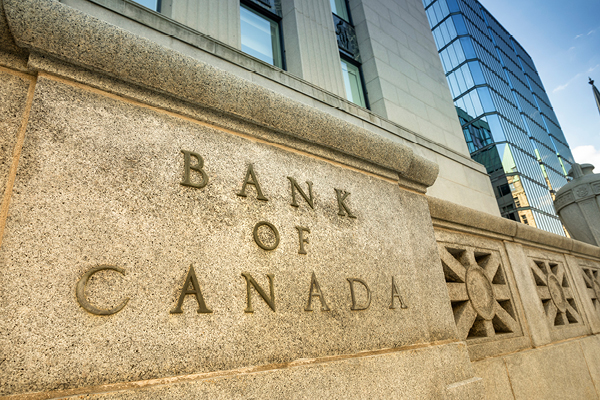
The Provinces Need Help. Time to Put the Bank of Canada to Work
The provinces are struggling.
By Marc-Andre Pigeon, Assistant Professor, Johnson Shoyama Graduate School of Public Policy (JSGS); Murray Fulton, Director, JSGS; and Michael Atkinson, Professor Emeritus, JSGS**DISCLAIMER: The COVID-19 situation in the provinces is rapidly changing. This brief was originally posted on March 24, 2020, and since then, some of its recommendations have been acted on. That said, there is still much work that needs to be done, therefore the authors have re-written the brief to reflect the current situation. For the original Policy Brief, please click here.**
The provinces are struggling.
Last week, Newfoundland and Labrador premier Dwight Ball released a letter he had sent earlier in March to the Prime Minister saying his province’s efforts to raise short and long term borrowing had been “unsuccessful.”
Four days after his letter was sent, the Bank of Canada promised to buy up to 40% of all new provincial debt. Since then, it has purchased more than $1.3 billion of provincial debt. And Newfoundland has been able to raise $200 million to help pay its bills.
But more may be needed. The Bank of Canada, whose sole shareholder is the federal government, should consider making short-term zero-interest loans to the provinces to relieve any lingering fiscal pressure for the duration of the crisis. If the government can make available zero interest loans to small businesses, surely it can contemplate the same for provinces and their municipalities that have to shoulder COVID-19-related spending.
But can the Bank of Canada make these loans? The Bank of Canada Act says it can. Section 18 provides sweeping powers to the Bank of Canada to make short-term loans to the provinces. It also empowers the Bank to buy federal and provincial debt, as the recent commitment shows.
But where will the money come from? The same place it always does, by keystrokes into a computer, as Ben Bernanke remarked in the midst of the (last) financial crisis when central banks engaged in trillions of dollars of “quantitative easing.”
But won’t that be inflationary? Maybe. Supply has been crimped, so price increases are possible. But we think a bout of inflation is highly unlikely given the precipitous drop in energy costs, disappearing effective demand and related idle capacity in the form of unemployment and silent factories. And if it does lead to inflation, we can manage that problem later. Right now, the provinces need help because they need to keep up the fight against COVID-19 and help many put food on the table, pay rents and pay debts.
Some policymakers will undoubtedly object that this would create a moral hazard problem where risk is offloaded onto others. Why don’t we force Alberta to impose a sales tax like everyone else? And isn’t the crisis in Newfoundland just the result of decades of mismanagement? And how can we know the provinces will spend the money wisely?
There are two responses to these kinds of argument. First, this is the worst possible time to introduce a sales tax in Alberta or for other provinces to increase theirs. Second, there is no guarantee that bad investments won’t be made, but we think the level of scrutiny by the media and opposition parties is such that politicians know that bad decisions will incur swift social sanction. The electorate is awake. Politicians beware.
There are other options too. The Bank could continue to buy provincial debt at market rates (a “traditional” form of quantitative easing) but increase its share to something closer to 100%. The federal government could promise to flow the resulting interest payments back to the provinces. Or the Bank could issue a blanket guarantee for all provincial debt and drive yields down to federal levels.
There is another more simple and effective option. The Bank of Canada could buy new short-term federal debt – at zero interest or prevailing rates, it doesn’t matter – and let the federal government transfer funds to the provinces at no net cost. Consider it a COVID-19 grant.
Even before the COVID 19 crisis, resource-dependent provinces like Newfoundland and Labrador were in trouble. Now they are in crisis and their peers, many of whom have similarly worrying debt/GDP ratios, aren't far behind.
The Bank of Canada was born of the Great Depression to deal precisely with the kind of systemic event we now confront. But even facing a Depression, policymakers let moral hazard worries keep them on the sidelines, causing one province (Alberta) to default on its debt. This cannot happen again.
Nor should provinces refrain from making needed emergency interventions because of a nagging worry about their ability to fund the expenses. The human cost is too great, the stress on our federation too irreversible. The federal government needs to live up to Prime Minister Trudeau’s promise to “do what it takes” to get Canada through this crisis. The provinces need the federal government to put the Bank of Canada to work. We all do.
References/Footnotes
1 Candian Federal and Provincial Fiscal Tables. RBC Economics. March 20,2020. http://www.rbc.com/economics/economic-reports/pdf/canadian-fiscal/prov_fiscal.pdf
2 As this publication was being readied for publication, the Bank of Canada announced that it would begin buying up to 40% of provincial short-term debt in the primary market (i.e., directly from the provinces). For details, see here: https://www.bankofcanada.ca/2020/03/bank-canada-announces-new-program-support-provincial-funding-markets/.
Marc-Andre Pigeon

Marc-André Pigeon is an Assistant Professor in the Johnson Shoyama Graduate School of Public Policy, University of Saskatchewan campus. He holds a PhD in Mass Communications from Carleton University and has worked in a number of economics and policy-related positions, most recently as assistant vice-president of public policy at the Canadian Credit Union Association. He has also served as interim-vice president of government relations at CCUA, as a special advisor and senior project leader at the federal Department of Finance, and as lead analyst on several federal Parliamentary committees including the House of Commons Standing Committee on Finance, the Standing Committee on Public Accounts, the Standing Committee on Banking, Trade and Commerce, and the Standing Committee on Agriculture and Forestry. Dr. Pigeon also worked as an economic researcher at the Levy Economics Institute of Bard College and started his career as a financial journalist at Bloomberg Business News.
His research interests include the study of co-operatives, behavioural economics/psychology, income distribution, money and banking, and fiscal and monetary policy.
Murray Fulton

Michael Atkinson

Michael Atkinson is a JSGS Professor Emeritus. He has held a number of academic administrative appointments including Associate Vice President Academic at McMaster University (1995-97) and Provost and Vice President Academic at the University of Saskatchewan (1997-2007). He served as the founding Executive Director of Johnson Shoyama (2008-2015) and has also held visiting appointments at Duke University, Western University and the Université de Strasbourg. In the early 1990s he served as editor of Governance: An International Journal of Policy and Administration. His academic background is in political science and he has published extensively in that field and in public administration and public policy

